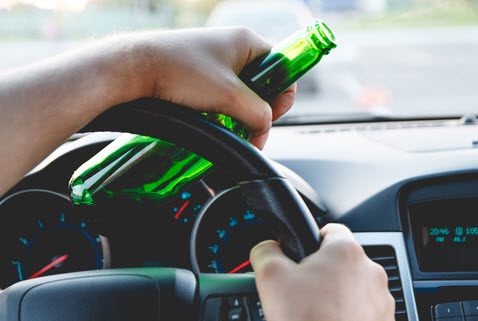Today’s police officers and prosecutors have more tools than ever before with which to catch and convict “drunk drivers.” Yet alcohol is still directly responsible for about a third of the fatal car crashes in the Sunshine State.
Alcohol is a depressant that causes unnatural relaxation by slowing motor skills. This substance also gives people a sense of euphoria which hinders judgement. These things may make people more fun at parties, but they exponentially increase the risk for a serious car crash.
Damages in alcohol-related collisions usually include compensation for both economic losses, such as medical bills, and noneconomic losses, like pain and suffering. Additional punitive damages may be available as well, in some cases.
First Party Liability in Florida Alcohol-Related Wrecks
Given the effects listed above, drinking before driving is a clear breach of the duty of reasonable care. People simply cannot safely operate motor vehicles while they are alcohol impaired. Such operation requires lots of concentration and tip-top motor skills.
If impairment causes a car crash, the tortfeasor (negligent driver) may be legally responsible for the damages outlined above.
Given the low standard of proof in negligence cases, such liability is usually easy to establish. The victim/plaintiff need only prove impairment by a preponderance of the evidence (more likely than not). If the tortfeasor was at a place where alcohol was served prior to the crash, it is more likely than not that the tortfeasor was drinking and was therefore impaired. The tortfeasor must have substantial evidence to refute that claim, such as a solid alibi or a 0.0 BAC test result.
If the tortfeasor was arrested for DUI and took a test that revealed a BAC above the legal limit, the negligence per se shortcut may apply. This doctrine has two basic prongs:
- The tortfeasor violated a safety law, like the DUI statute, and
- That violation substantially caused the injury.
In some cases, negligence per se is only a presumption of liability as opposed to absolute proof.
Third Party Liability in Florida Alcohol-Related Collisions
The Sunshine State has one of the lowest auto insurance minimum requirements in the county. As a result, if the tortfeasor caused a wrongful death or another catastrophic injury, the tortfeasor may not have enough insurance coverage to fully compensate the victim/plaintiff.
Fortunately, Florida has a very strong dram shop law. This law holds commercial alcohol providers responsible for damages if their impaired patrons cause a car crash or other injury. The law has varying applicability based on the age of the tortfeasor:
- Under 21: The law is very strict with regard to minors. If a commercial provider sells alcohol to a minor, that provider is responsible for damages as a matter of law. There are very few valid defenses.
- Over 21: If the tortfeasor was an adult, the victim/plaintiff must establish that the provider knew the individual was habitually addicted to alcohol. Circumstantial evidence, such as prior credit card receipts, is admissible on this point.
Florida’s dram shop law applies to both packaged and non-packaged commercial providers. So, in addition to bars and restaurants, places like grocery and convenience stores may also be liable. It is foreseeable that a person will open a package of alcohol, like a can or bottle, and drink on the way home.
Team Up with Experienced Attorneys
Alcohol-related wrecks are far too common in Florida. For a free consultation with an experienced personal injury lawyer in Brandon, contact Reed & Reed. We have four area offices (St. Petersburg, Lakeland, Tampa, and Clearwater).
Resource:
cdc.gov/motorvehiclesafety/impaired_driving/impaired-drv_factsheet.html




